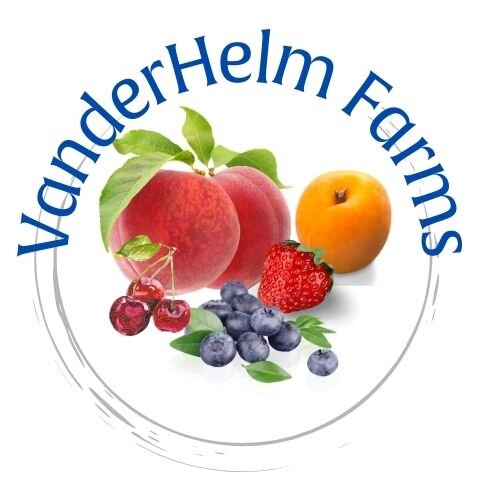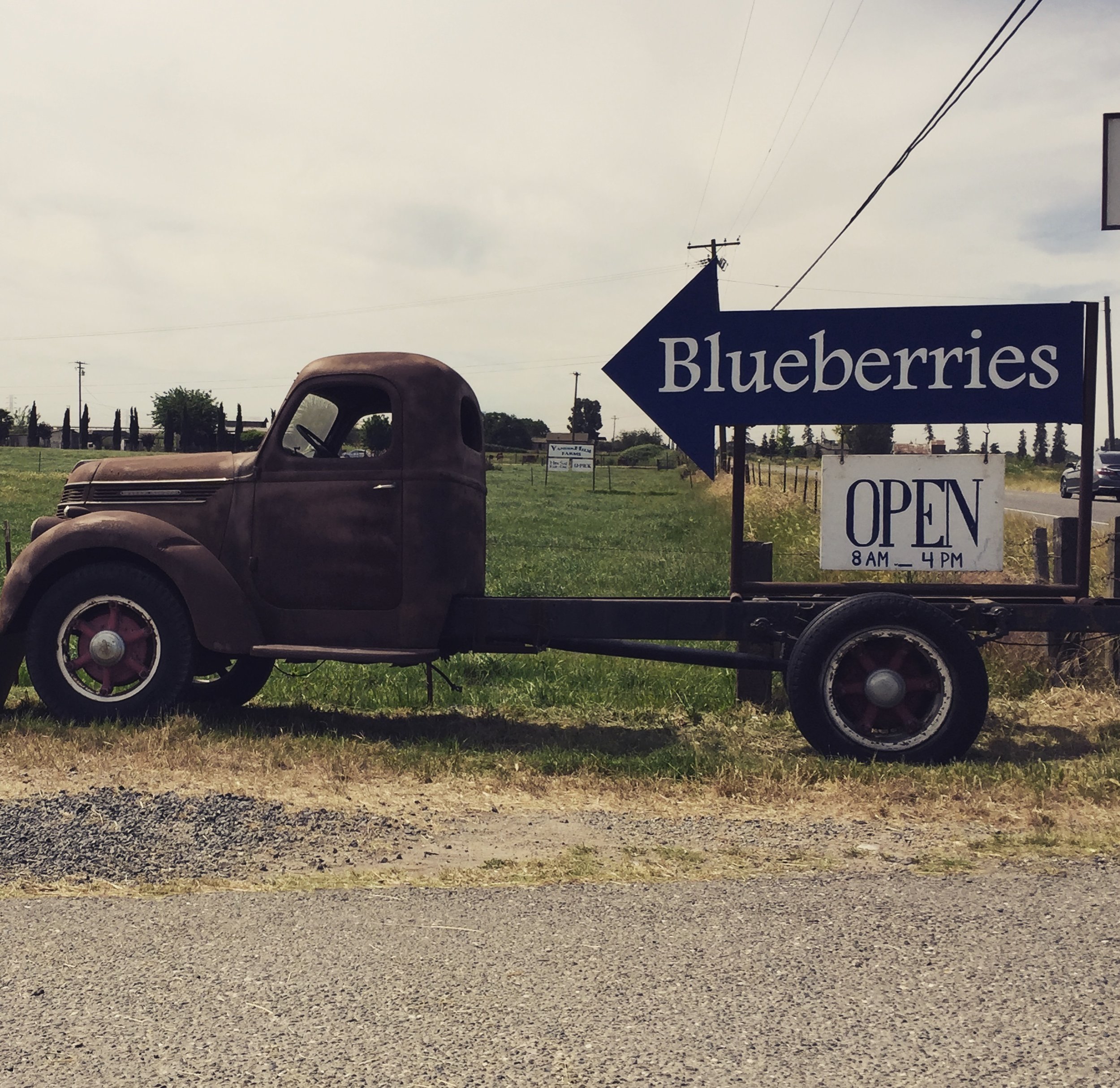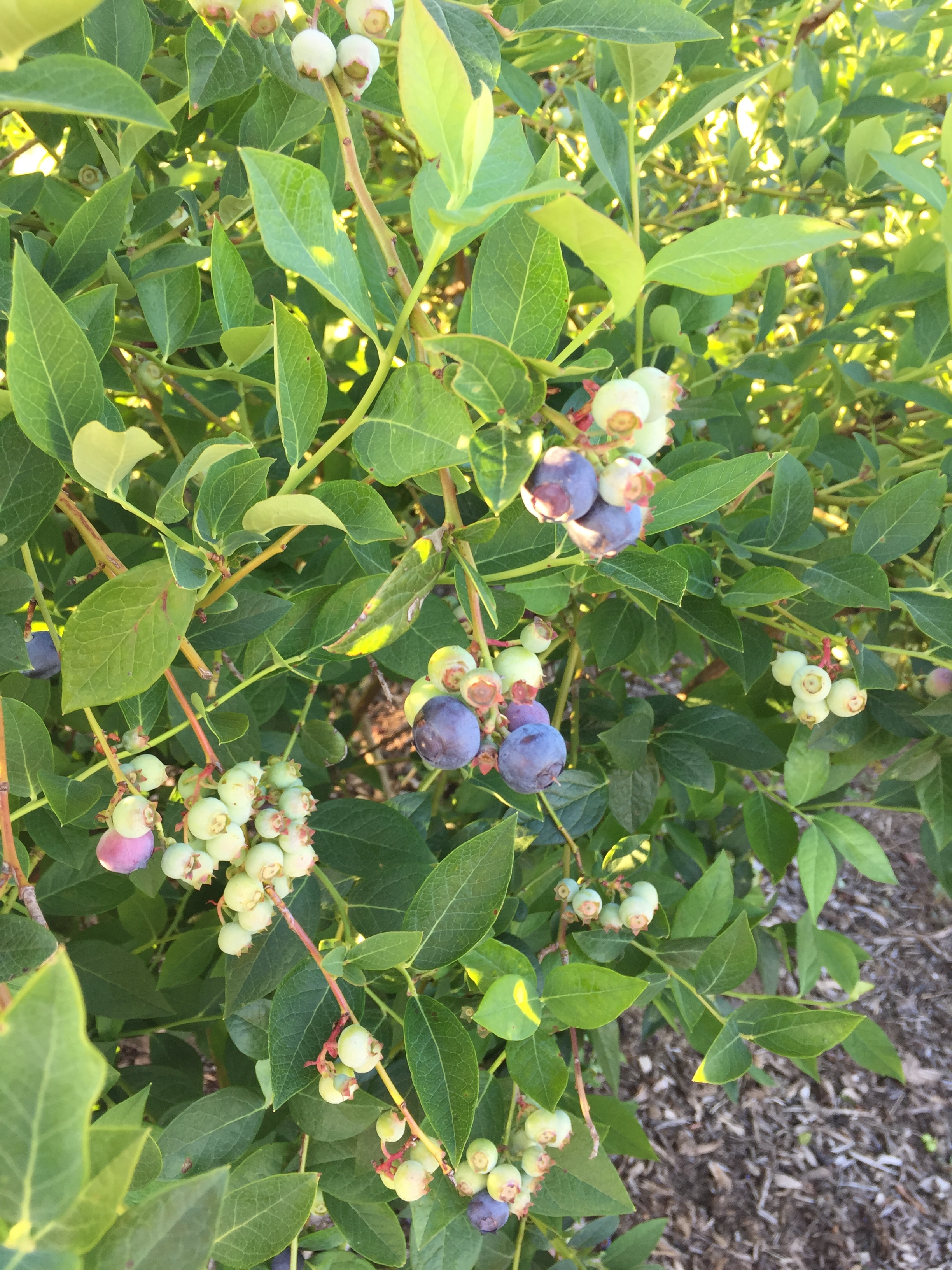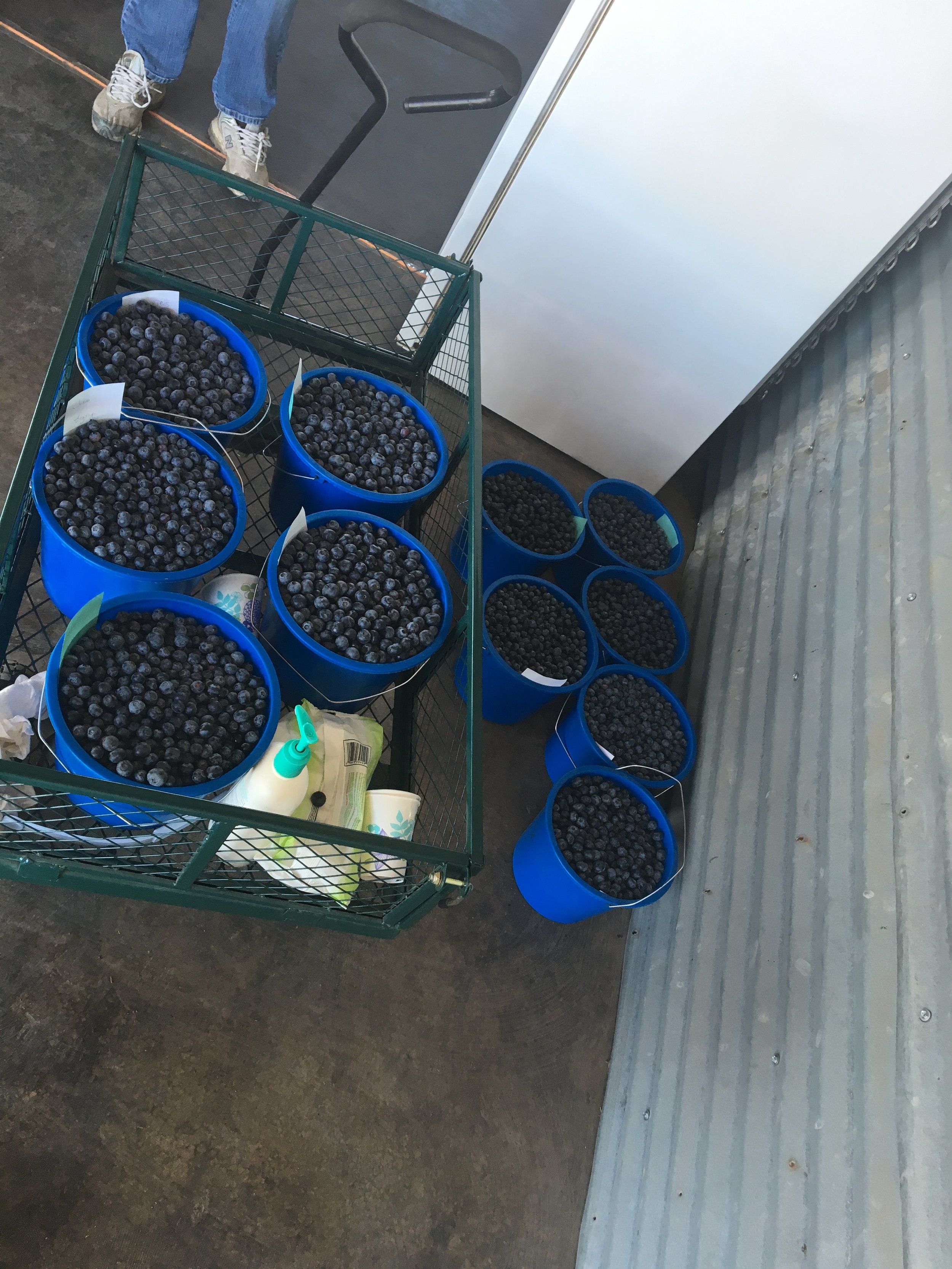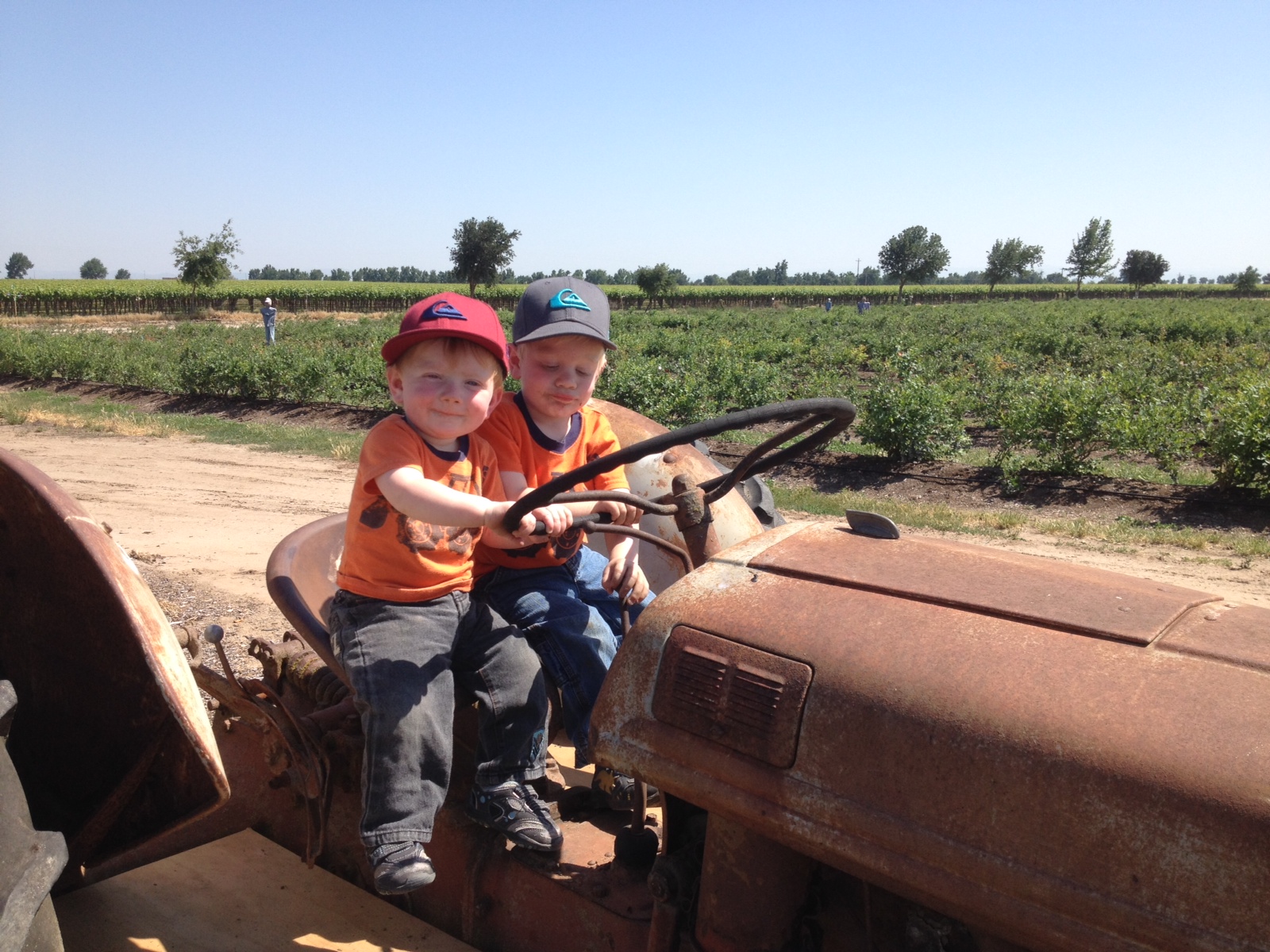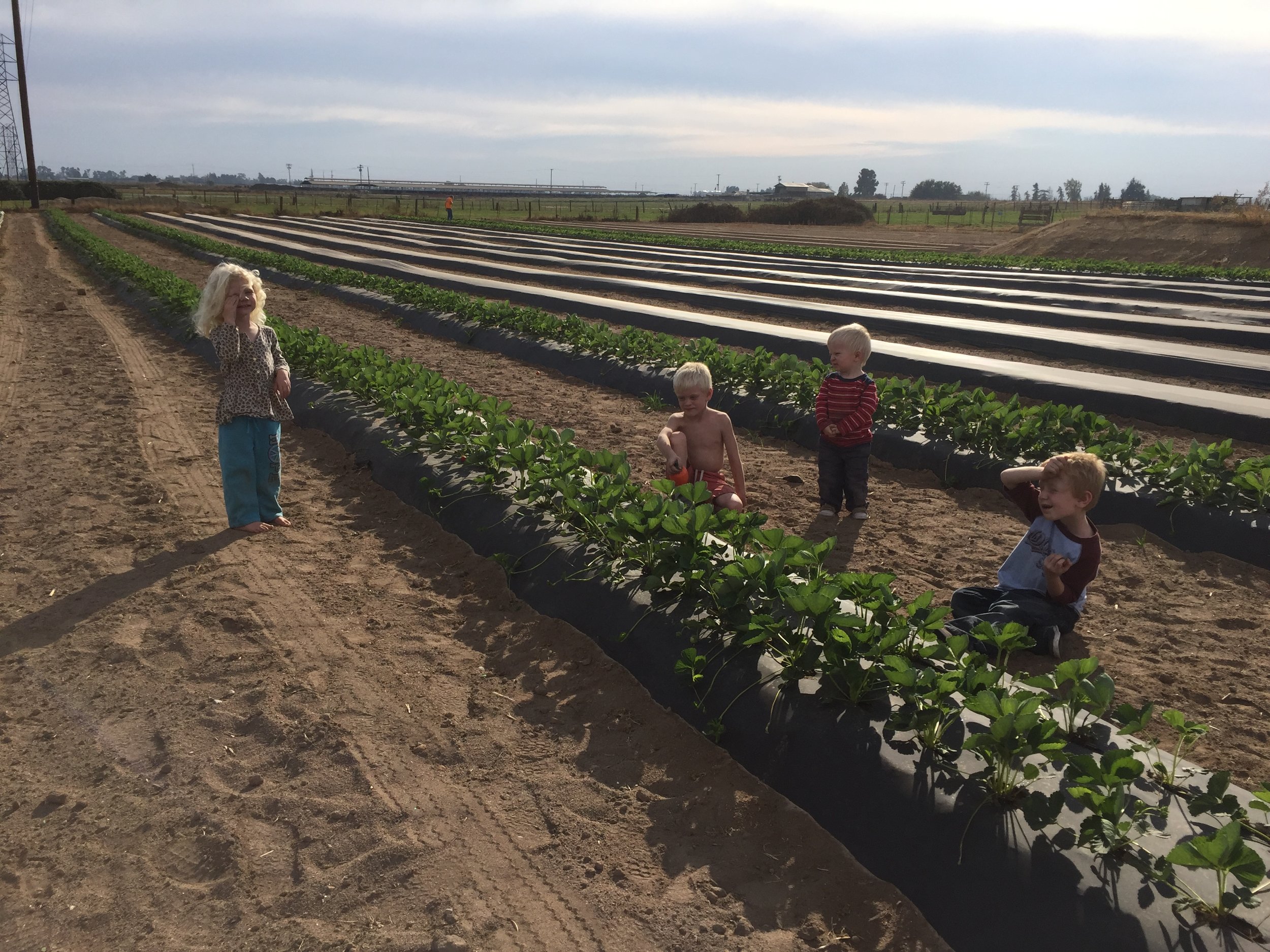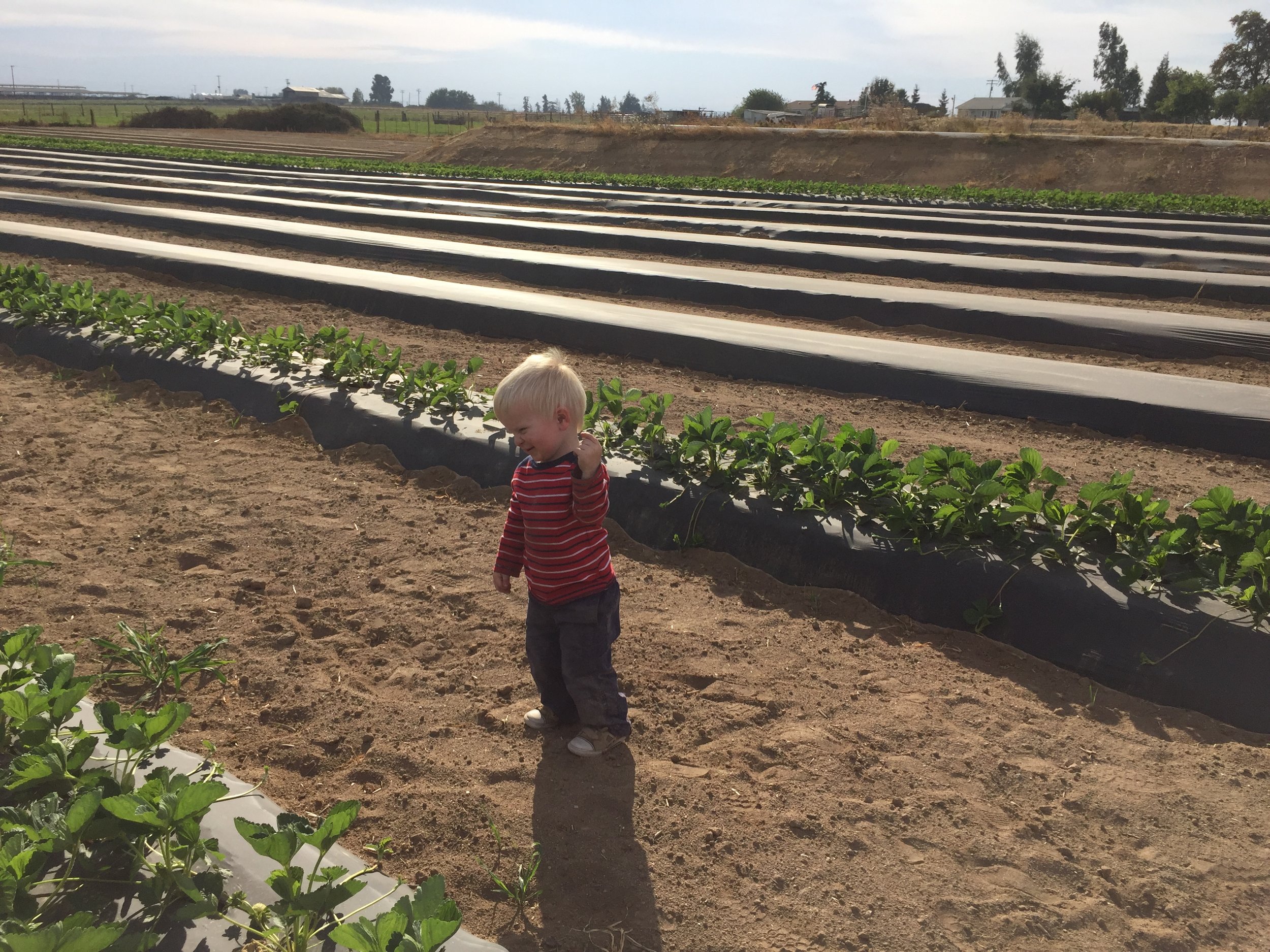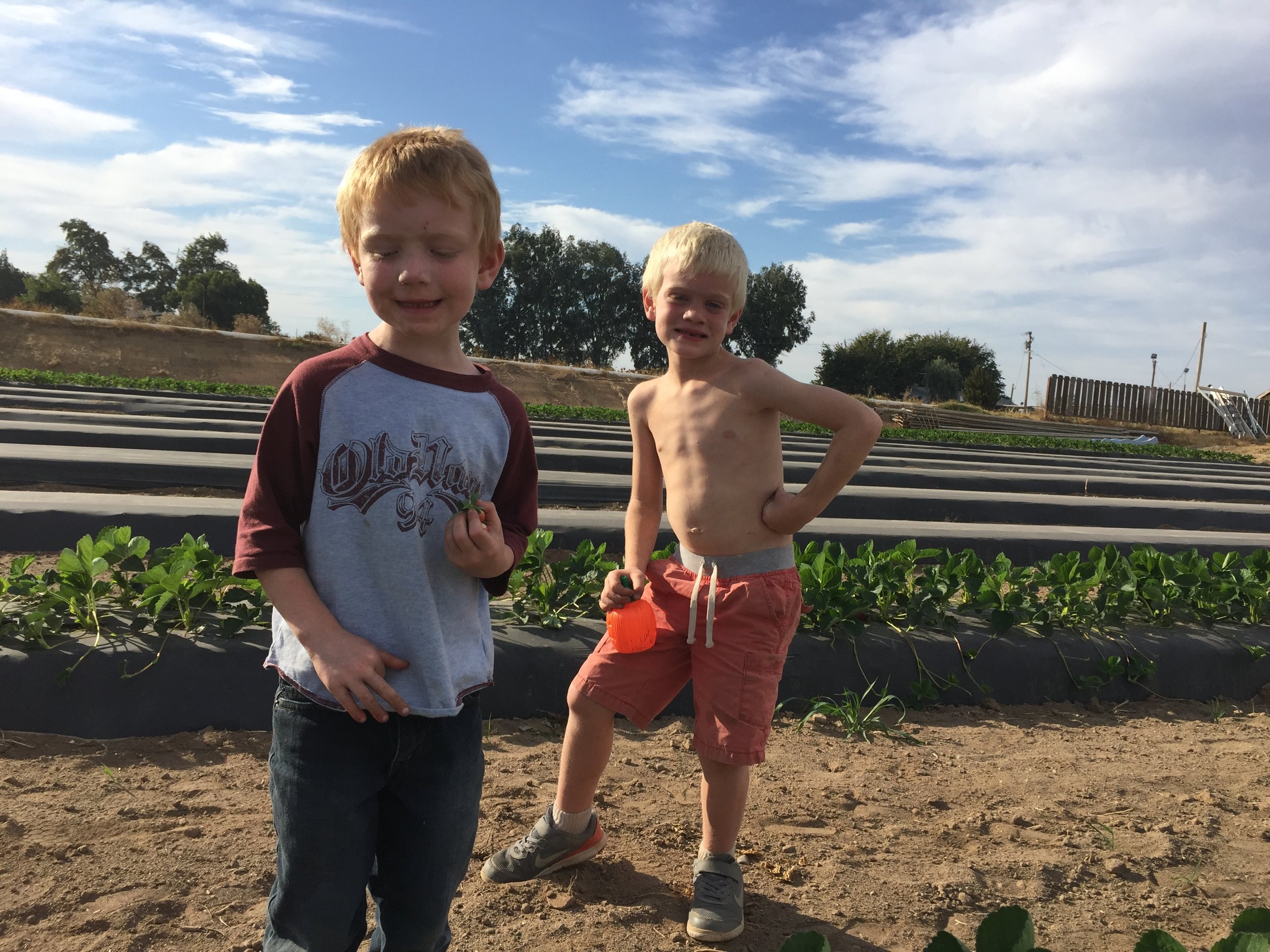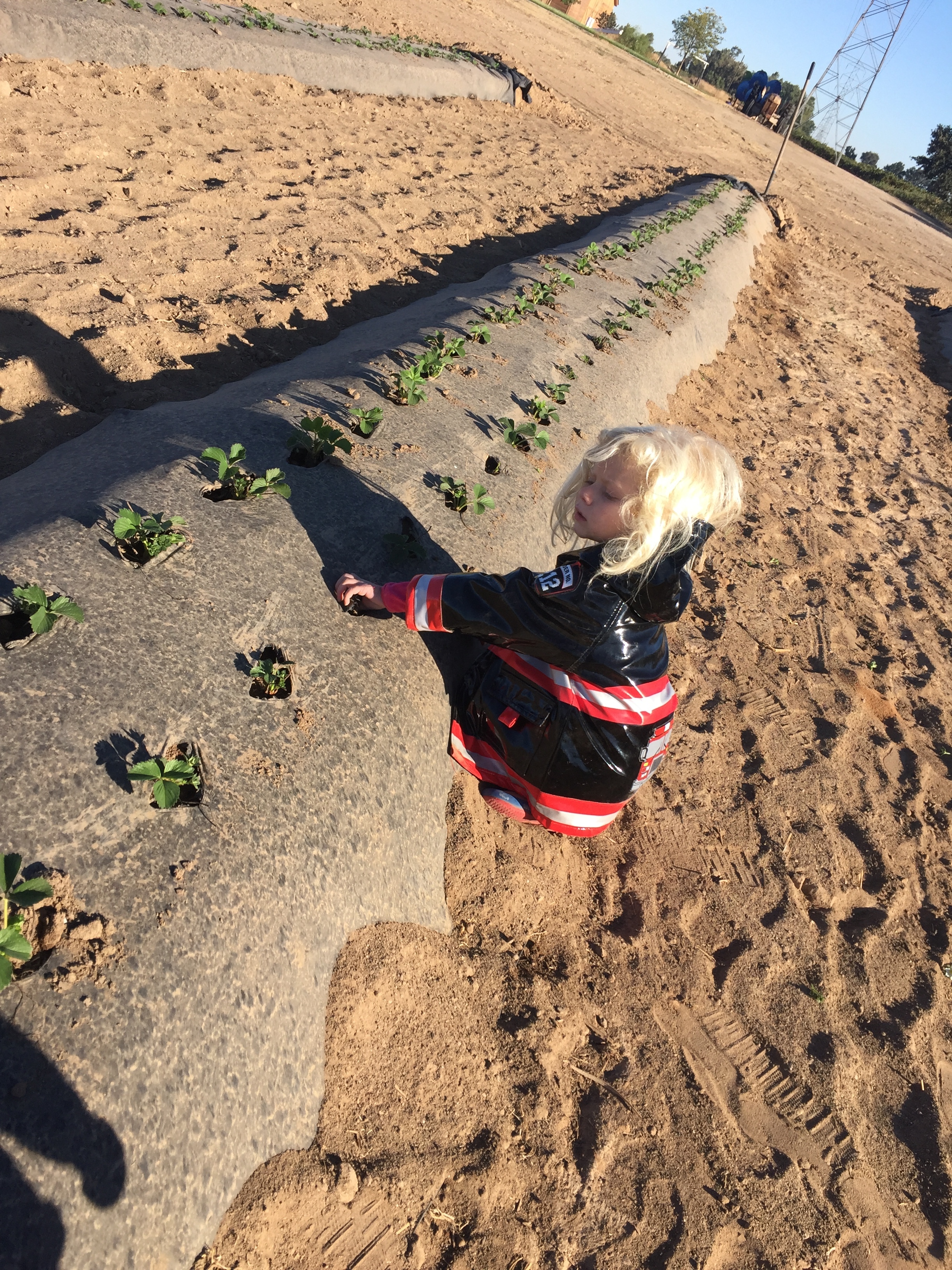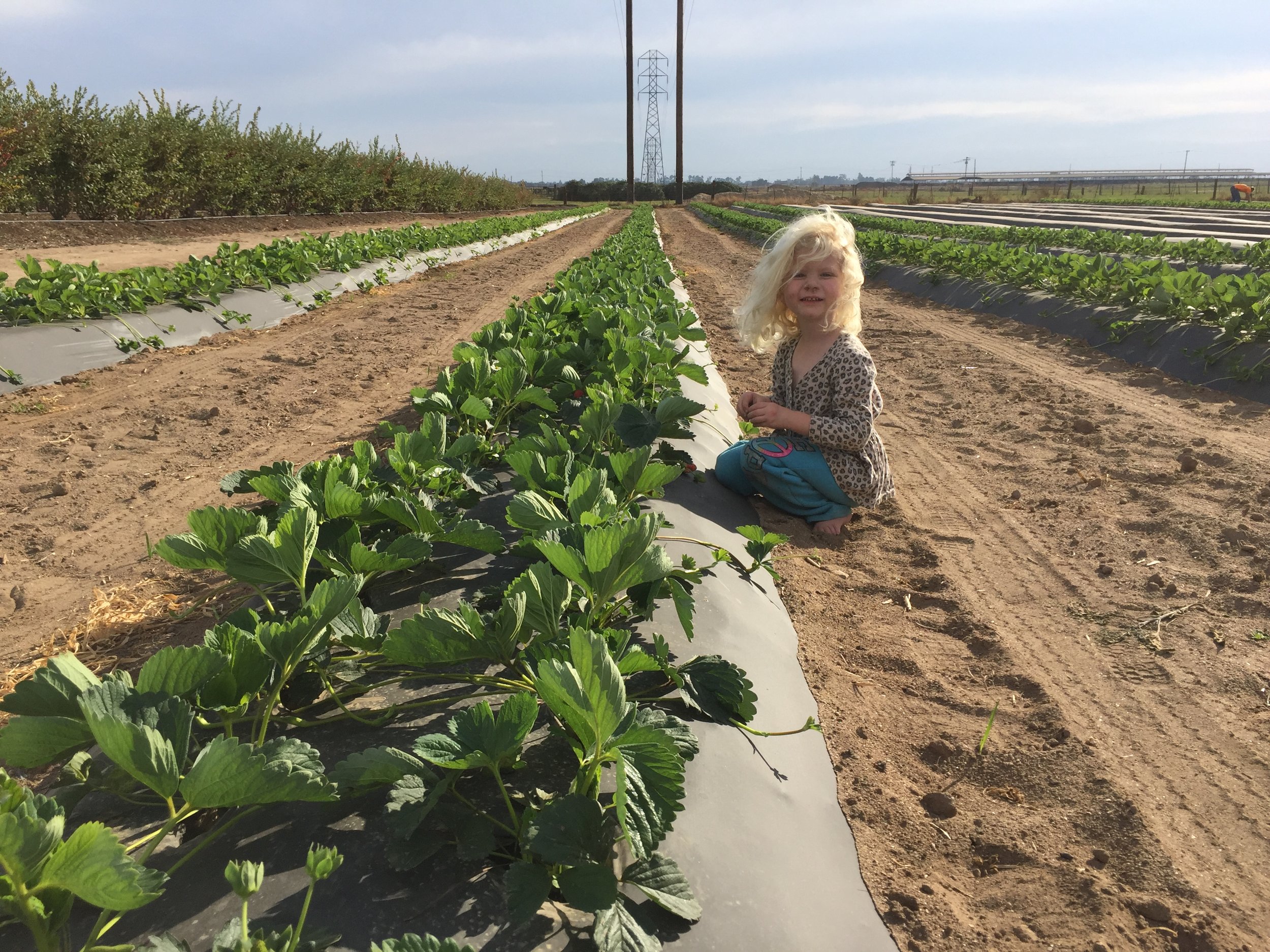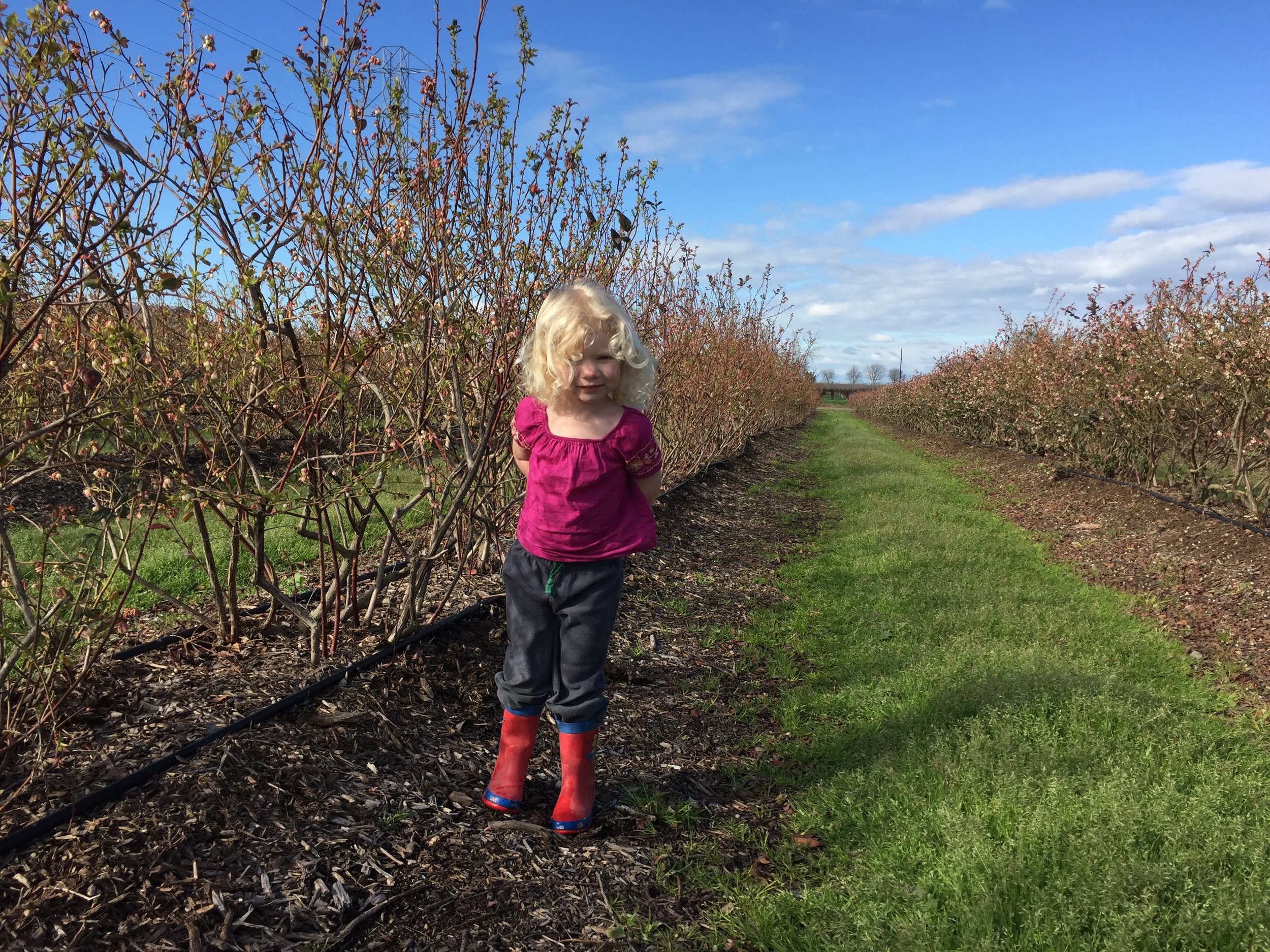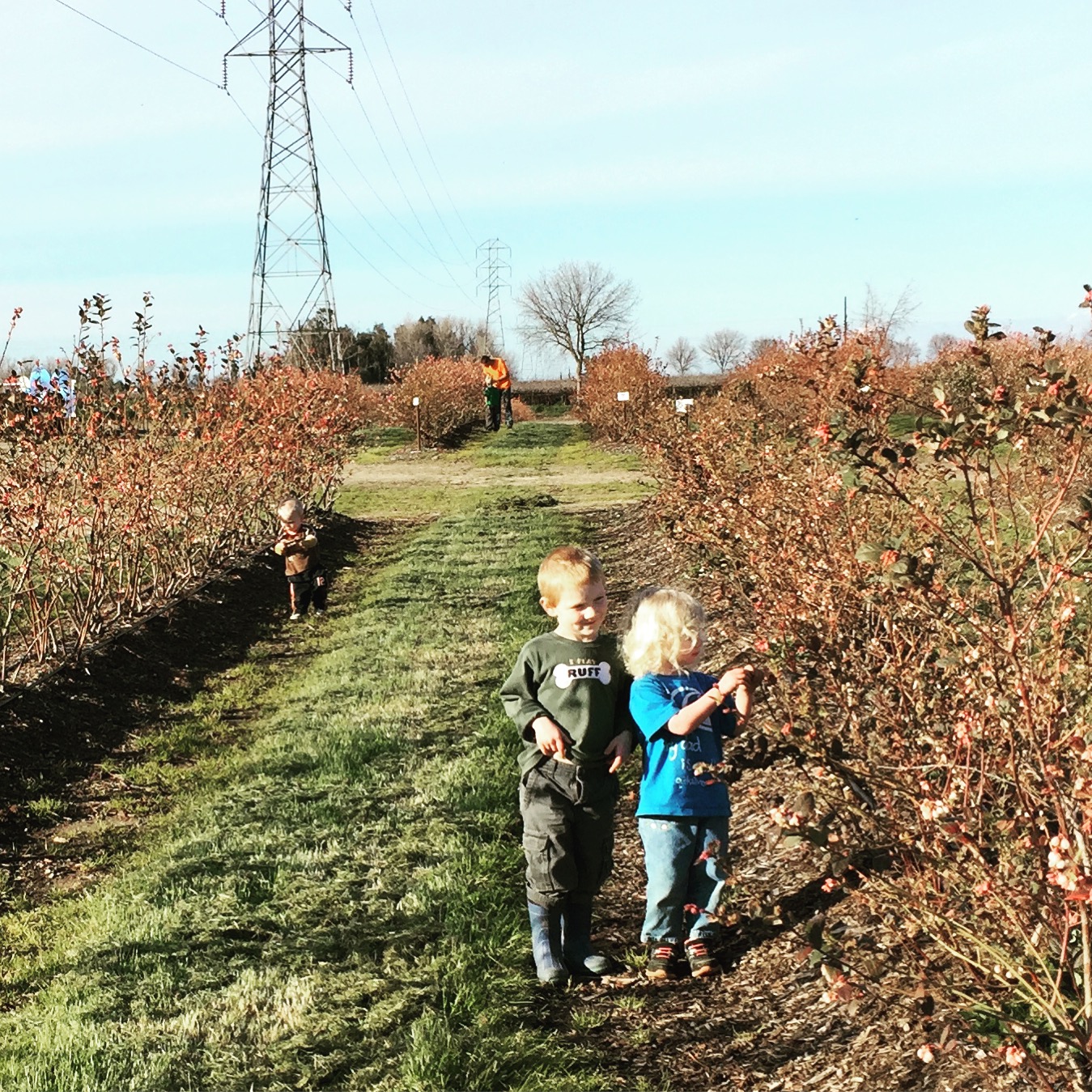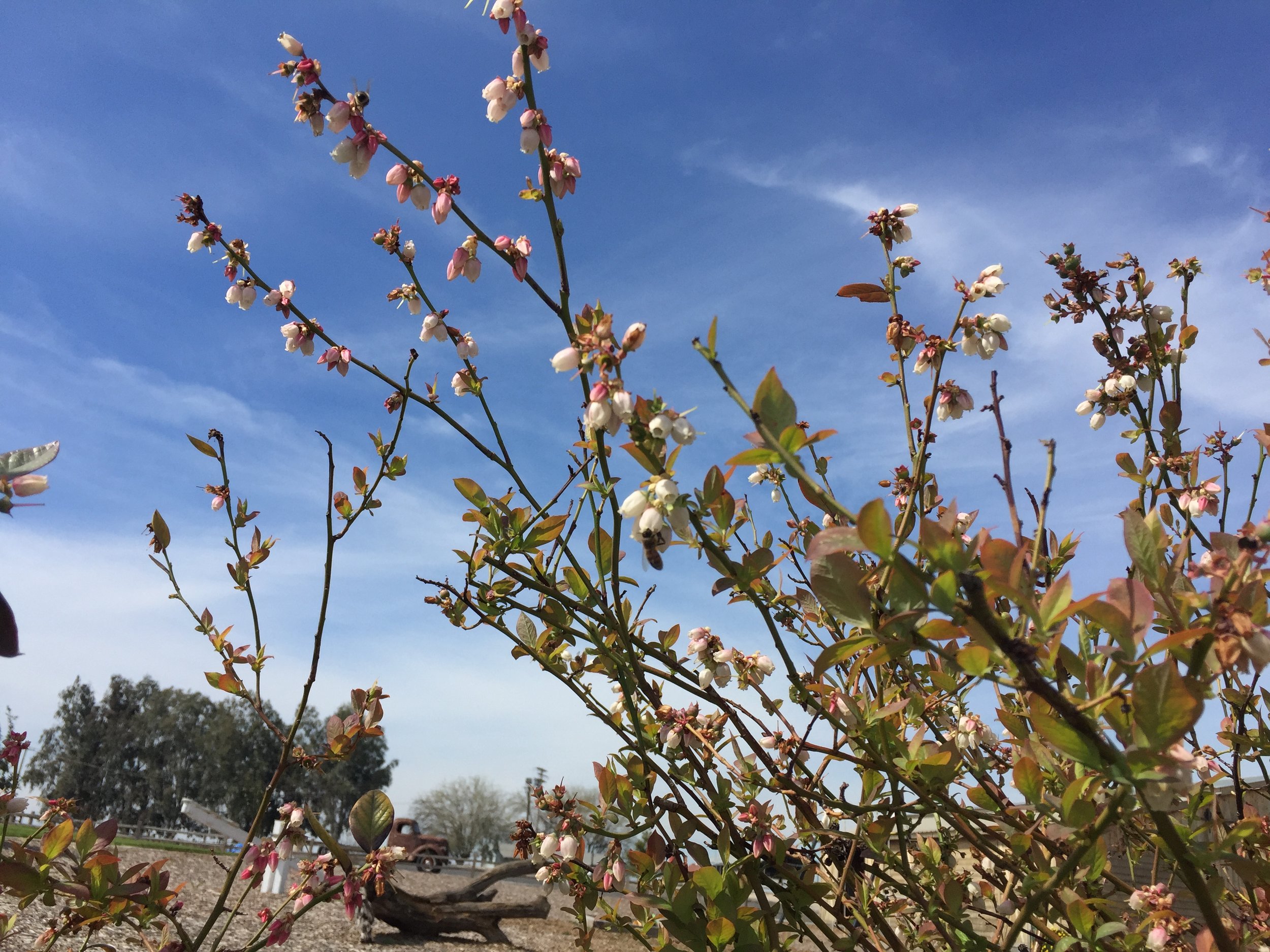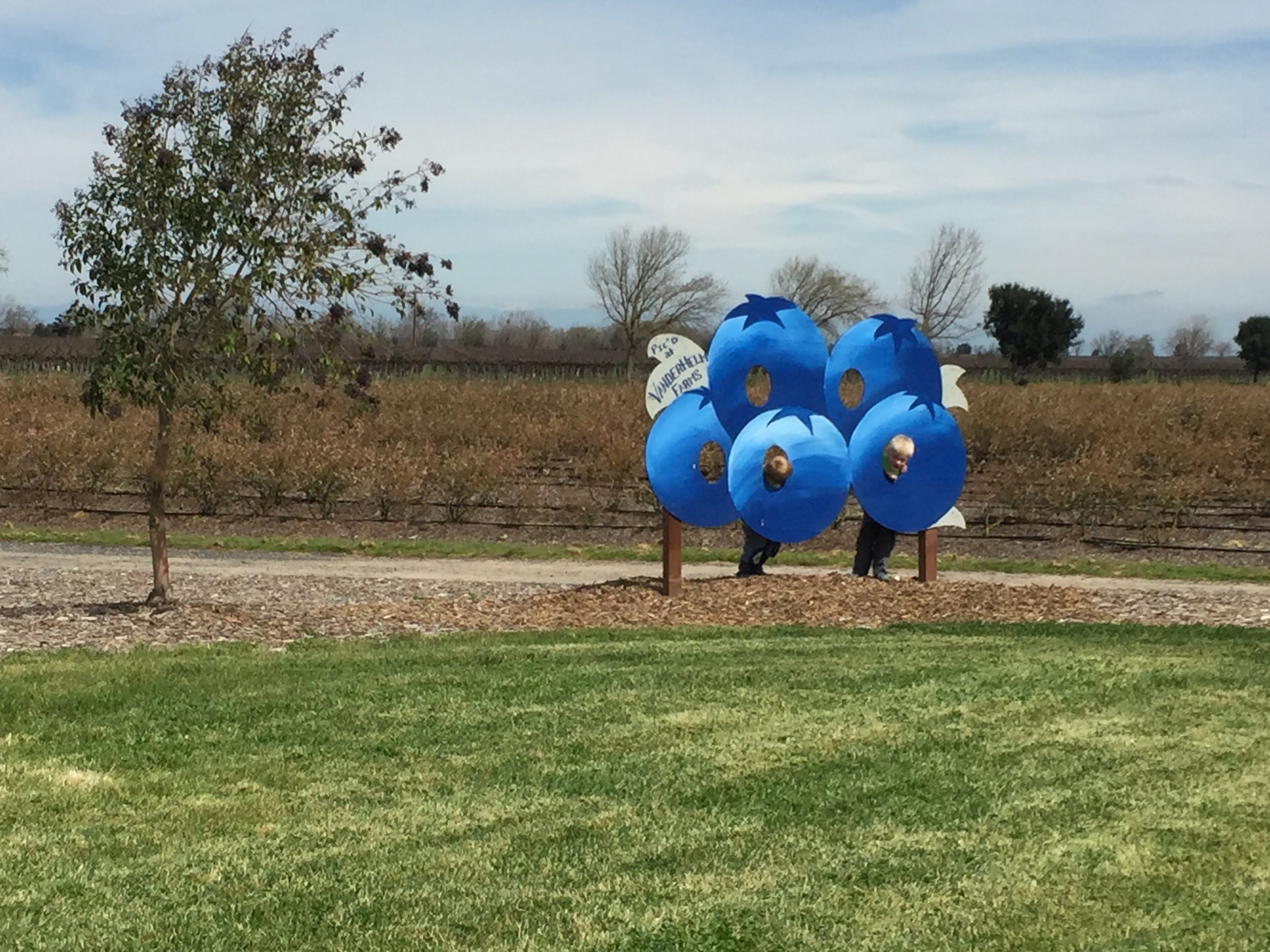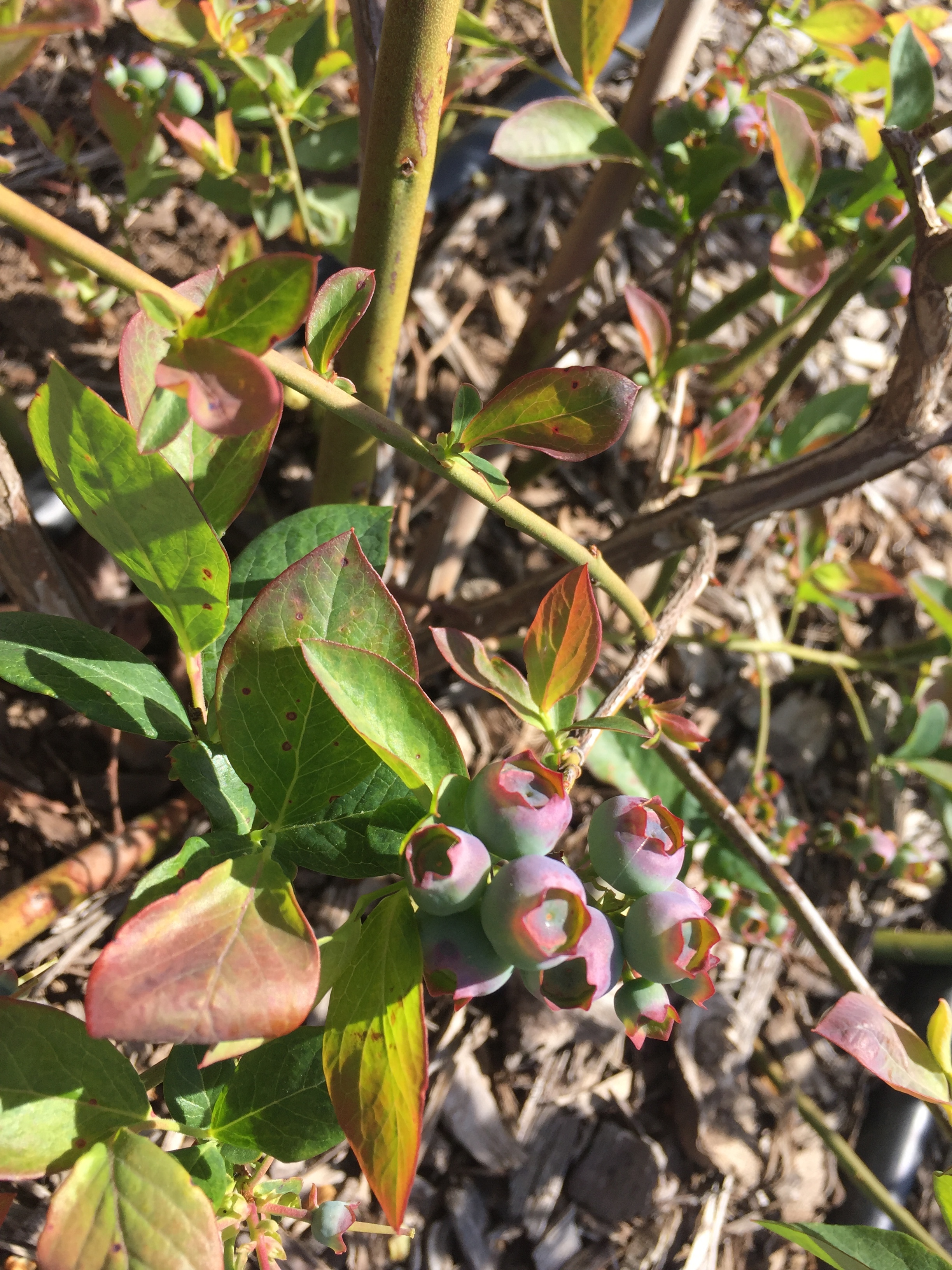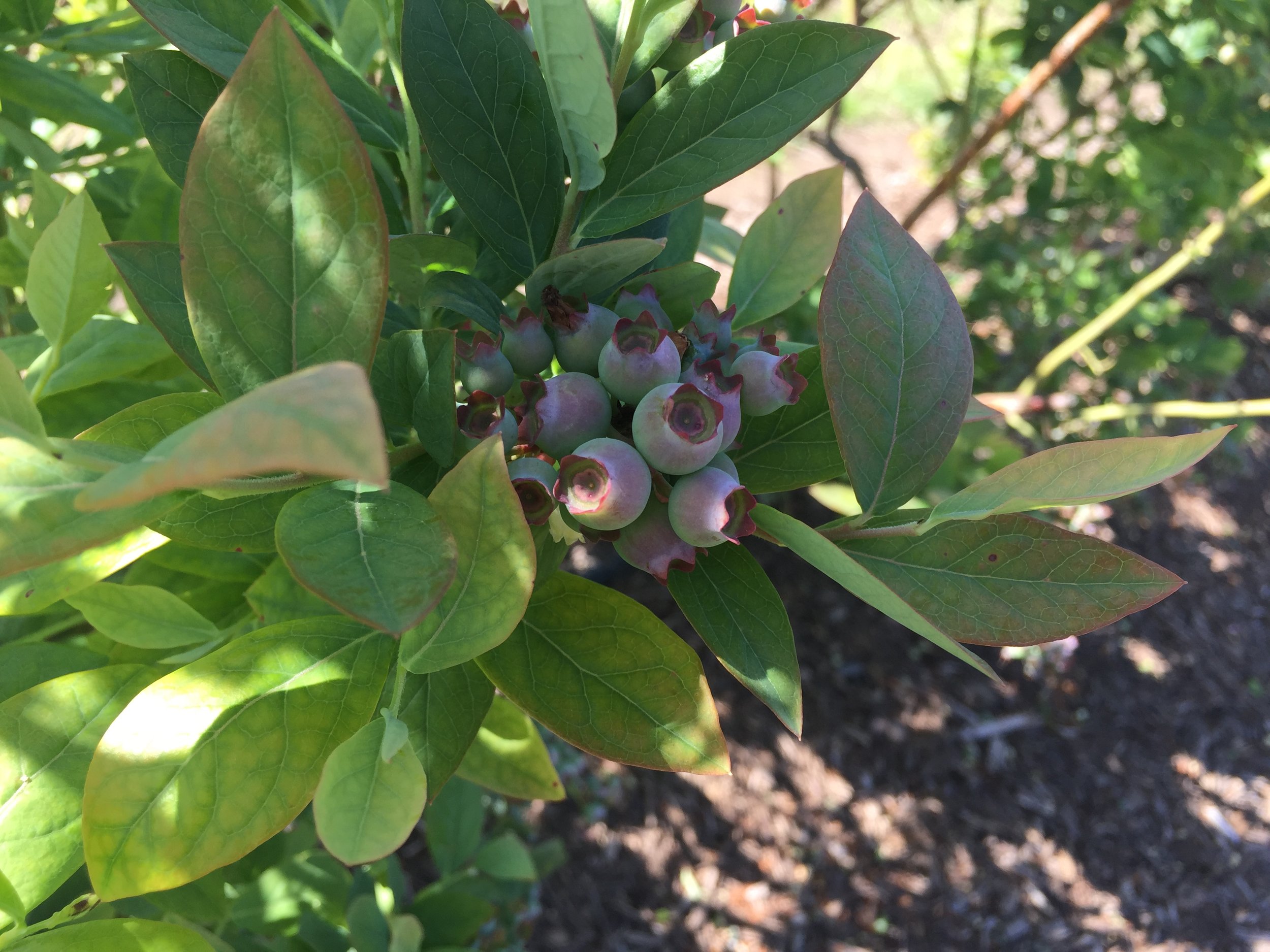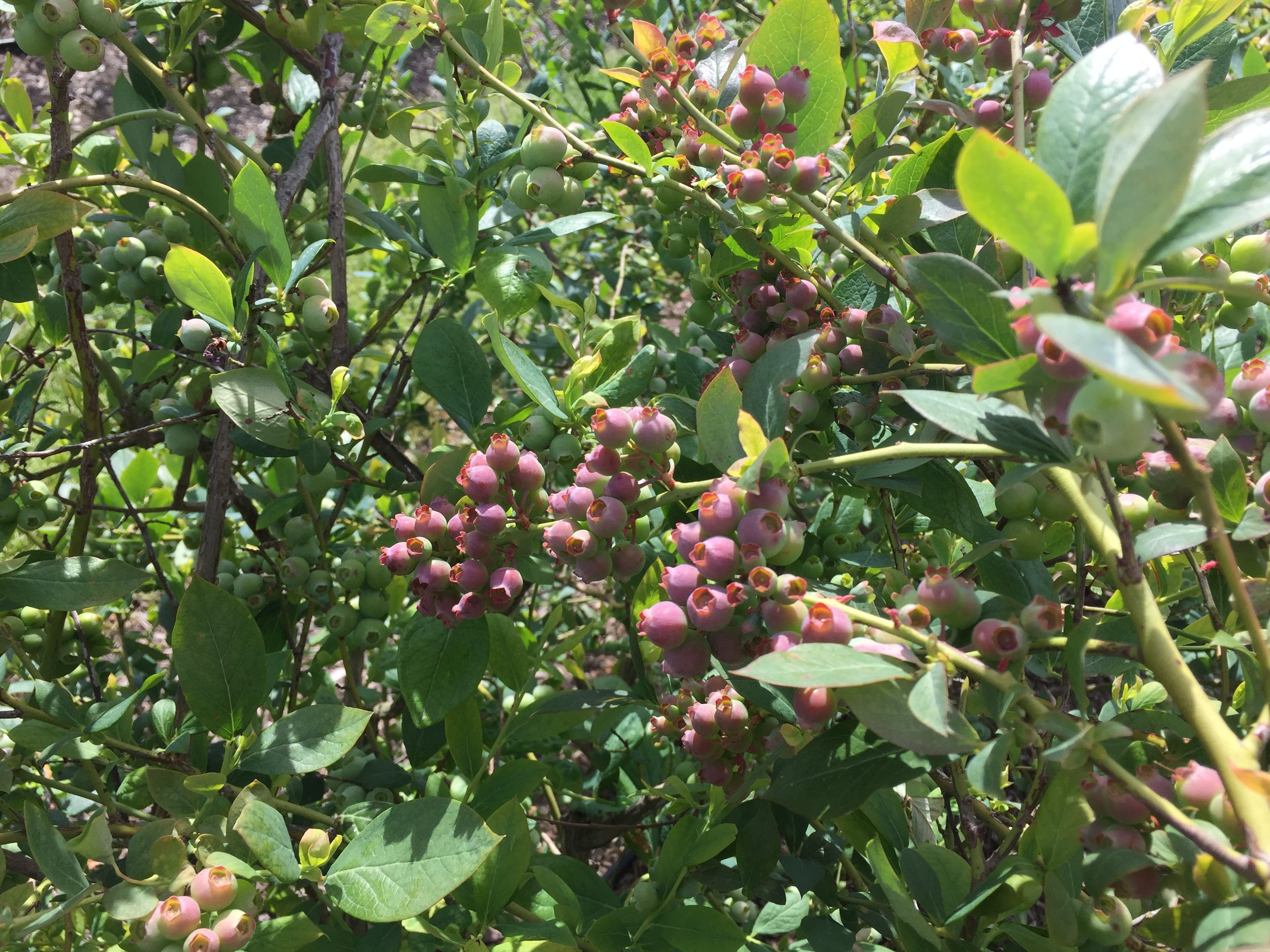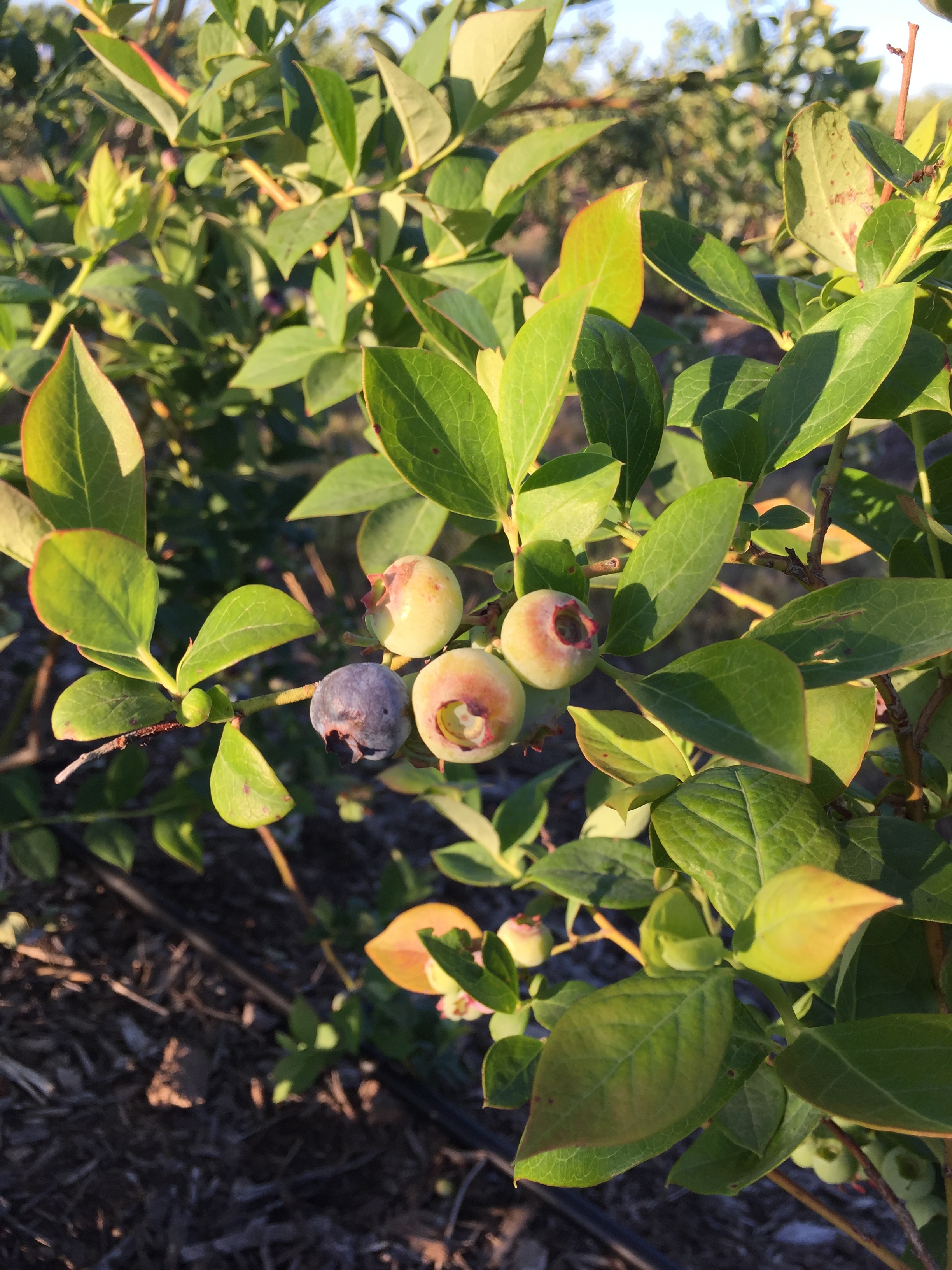How we grow at VanderHelm Farms
Many people want to know about our families farming practices because of concern for food safety. Ron’s family has been farming on this property for over 30 years. We live and work on the property. We eat the crops we grow and drink the water. We have always done our best to find the most flavorful varieties to grow and use the best farming practices to produce them. We have chosen not to certify our farm "organic," but descriptive terms we use would be "sustainable agriculture,” “integrated pest management” and we use “biocontrols."
Our management practices incorporate many techniques that are integral to any good organic farm. We utilize compost and wood chips throughout the farm. We build organic matter and improve soil structure through the use of compost, minimum tillage, biological fertilizers and cover crops. We have areas on the farm where we provide habitats and encourage beneficial insects and nematodes. Selectively, we release native beneficial insects and monitor their presence in the field as a weapon against the harmful ones. When we need to, we utilize organically accepted and least toxic chemicals, generally at an early stage in the plant's growth before it has developed edible parts and when it is most vulnerable to destruction by harmful pests. Many of the crops never require any chemical intervention. This approach to pest control is best described as IPM, or Integrated Pest Management.
"Spraying" has developed a negative connotation. However, it is a tool used in virtually all farming, whether organic, sustainable, or conventional. We have recently used foliar feed sparingly (spray major and minor nutrient elements onto the leaf surface), which is a low impact way of meeting a plant's nutritional needs. Organic growers may only utilize biological and natural chemicals to kill the pests that attack crops, though they are still classified as pesticides. Conventional growers may use both natural and synthetic material to stop unusual infestations.
Our goal is to maintain environmental balance and health. We promote conditions that favor beneficial insects. We keep weeds controlled primarily by mechanical weeding. Some years we have not sprayed for weeds at all. When we have used chemicals we first look for OMRI approved chemicals. OMRI is the Organic Materials Review Institute. They decide which organic and synthetic chemicals should be used on organic crops.
Holistic medicine is a favorable method for maintaining one's health. However, the tools of modern medicine are invaluable when the health system swings out of balance. That is the way we view the chemicals that are available for the control of pests and disease; use them sparingly and only when necessary to save the crop. It is more satisfying merely to observe the inter-activity of growing crops rather than intervene. Compost, cover crops, rotation, and fallowing, build soil health and microbial life. Biological fertilizers are used to supplement plant nutrition that may not be totally met by the natural reserves in the soil.
We believe most people choose "organic" because of their concern about pesticides. Pesticides are not bad when used properly, just like antibiotics, chemotherapy, and a myriad of other drugs that are used to keep us healthy, pesticides are used judicially to keep the farm healthy by organic farmers as well as non organic farmers. The difference is that organic farms can only use pesticides and fertilizers approved by OMRI. Non-organic growers can choose based on what is approved by CDPR, the California Department of Pesticide Regulation.
VanderHelm Farms is a local producer of sustainably grown fruit using modern methods. We make that judgement based on the following criteria:
1. Healthy, bio-diverse soil
Cover crops provide rotation and organic matter to stimulate healthy soil biology.
Compost and green waste mulch build organic matter
Crop rotation buffers the build up of soil diseases that affect each crop family.
2. Natural pest management
Crop diversity and companion planting help beneficial insects
Release of beneficial insects partially control some pests.
Scouting and pheromone traps monitor the buildup of harmful pests
There are many new bio controls. No magic bullet but natural antagonists.
3. Water efficiency
All crops are irrigated with drip hose irrigation.
Frequent short watering uses only the moisture the crop requires.
Plastic and wood chip mulch conserves water.
4. Fertilizer use
Frequent soil sample and tissue samples determine plant nutrition needs.
Fertigation minimizes waste and leaching.
5. Sediment and erosion control
Cover crops and drip irrigation
6. Pollination Assistance
Bees are important to aid pollination
7. Food Safety
A formal food safety program has been adopted by the farm.
VanderHelm Farms does not grow any GMO crops. That is not a statement for or against, but reflects the fact that some consumers have a prejudice against GMO. Also, there are almost no fruits and vegetables that are GMO.
VanderHelm Farms sells directly to the consumer, thus providing the freshest possible fruit through u-pick, farmers markets, and fruit stands.
We welcome you to visit our family farm. Blueberries, Strawberries, Peaches, Nectarines, and Apricots all for you to pick. We own the land and live and work on the farm with our children. It is important to us to manage our land and resources to the best of our ability.
Location
1678 Albers Road,
Modesto, CA 95357
Hours vary by season
Always closed on Sundays
Over a Dozen different varieties
Apricots and hybrids
BellaRose Peacotum
Kaylese Aprium
Katy Apricot
Tasty Rich Aprium
Blenheim Apricot
Leah Cot Aprium
BellaSun Plumcot
Escort Aprium
Peaches and Nectarines
Sauzee Queen White Peach
Snow Angel White Peach
Krista Yellow Peach
Rich Snow White Peach
Galaxy Donut White Peach
Earlirich Yellow Peach Mid June
Rich Lady Yellow Peach Mid June
Sierra Rich Yellow Peach
Klondike Donut White Peach
Elegant Lady Yellow Peach
Sugar Giant White Peach August
Sweet Dream Yellow Peach August
Polar Kist White Nectarine
Honey May Nectarine
Artic Sweet White Nectarine Mid June
Honey Blaze Yellow Nectarine Mid June
Artic Joy White Nectarine
Spice Zee Nectaplum Mid July
Honey Royal Nectarine
Blueberries
SpringHigh
Snowchaser
Ventura
Emerald
Jewel
Star
Abundance
San Joaquin
Meadowlark
SuziBlue
Victoria
Blue Ribbon
Top Shelf
Legacy
Misty
Strawberries
Ripe April to August
Chandler
Cabrillo
Monteray
Seascape
